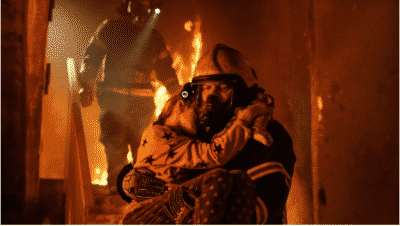Get the help you need right now 855-900-8437 Get Help Now
Get the help you need right now 855-900-8437 Get Help Now
March 5, 2020
As awareness of post-traumatic stress disorder (PTSD) continues to increase, let’s take a moment to break down some common myths about PTSD in the fire service.
Truth: PTSD is not a standard component of the job but a diagnosable and treatable mental health condition. While it’s completely normal to experience stress after a traumatic call, most fire fighters do not go on to develop PTSD – the debilitating mental health disorder in which a traumatic stress reaction lasts longer than one month and significantly interferes with daily functioning. Studies estimate that about 20 percent of fire fighters will experience PTSD at some point during their career.

Truth: Fire fighters may be surprised that seeking behavioral health treatment can improve perceptions. In a 2019 survey of patients discharged from the IAFF Center of Excellence for Behavioral Health Treatment and Recovery, 62 percent reported they felt the decision to seek treatment had a positive impact on how they are viewed in their department, while 14 percent reported no impact at all. Furthermore, when patients were surveyed again at six months after discharge, 58 percent reported their decision to seek treatment has had a positive effect on their overall career. (IAFF Center of Excellence Discharge Survey, November 2019).
Truth: Mental health experts agree that treatment for PTSD should be structured and time limited. While avoiding people, places and things associated with your trauma may help the you cope in the short term, long-term avoidance only exacerbates symptoms and delays the recovery process.
PTSD is treated using trauma-focused evidenced-based treatments, which are proven through rigorous scientific research to be effective and measurable in reducing symptoms. Examples include Prolonged Exposure (PE) Therapy, Cognitive Processing Therapy (CPT) and Eye Movement Desensitization Reprocessing (EMDR). Each of these treatments are typically completed in up to 12 weekly sessions that last 45-60 minutes, though treatment timeframes may last longer.
While treatment timelines can be impacted by a range of individual factors (e.g., co-occurring psychiatric or medical conditions, severe loss, job termination, an unstable living situation), the goal of PTSD treatment is to stop the cycle of avoidance that allows trauma symptoms to thrive. For many, this means progressing back to normal daily occupational functioning with appropriate supports in place, once acute symptoms are stabilized.

Truth: While it is true that someone with PTSD may experience suicidal thoughts, PTSD alone does not cause these symptoms. If you are experiencing suicidal thoughts, feelings and behaviors, you are mostly likely experiencing another serious mental health condition, such as Major Depressive Disorder (MDD). While those coping with PTSD are six times more likely to attempt suicide, individuals with MDD are nearly 20 times more likely to attempt suicide than those without the disorder.
To avoid the people, places, things and experiences associated with the original traumatic event, you may stop participating in daily life and become extremely isolated. This experience contributes to feelings of hopelessness, helplessness, alienation and, inevitably, worthlessness. Left untreated, symptoms can progress into clinical depression and greatly increase risk of suicide.
The IAFF Center of Excellence for Behavioral Health Treatment and Recovery is a comprehensive treatment center designed exclusively for IAFF members struggling with addiction, PTSD and other co-occurring mental health problems. Call today for a no-obligation, free and confidential screening for you or a loved one.
Lauren Kosc, M.A., LCPC is a behavioral health specialist, clinician and blog editor for the International Association of Fire Fighters. If you are an IAFF member in recovery and want to share your story, contact lkosc@iaff.org.